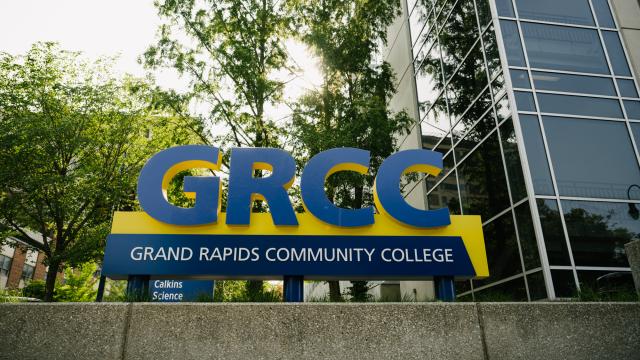
Employee Conduct Concerns
GRCC is committed to responding to conduct that is inconsistent with our mission, vision and values. Our "Roadmap for Leaders" has been created to help all employees understand how employee conduct concerns will be addressed, who is responsible to act, and what outcomes can be expected.
This Roadmap for Leaders document is a resource to ensure that leaders on campus understand their obligations, available resources, and expectations for follow up. Our goal is that the campus community will know where to report concerns and trust that the response of leadership will be fair, reliable and prompt, with appropriate and consistent action. To assist leaders in processing concerns when they arise, please review the Flowchart for Employee Conduct.
Questions about this Roadmap for Leaders and Flowchart can be directed to Brett Meyer at brettmeyer1@grcc.edu.
Complaint Process
GRCC values accountability and inclusion, and to those ends, we maintain a process to respond to concerns related to discrimination or ethics complaints.
The College maintains an Ethics Monitoring System for an individual to report any concerns related to ethics violations. Ethics concerns might include misconduct, mismanagement of funds, conflicts of interest, etc. Ethics violations may also include concerns of unlawful discrimination based on a protected status, such as race, national origin, gender, or sexual orientation.
Filing a Report
Making a report means telling someone in authority what happened, in person, by telephone, in writing or by email. Deciding whether to make a report and choosing how to proceed are personal decisions. At the time a report is made,you do not have to decide whether or not to request any particular course of action, nor do you need to know how to label what happened. Choosing to make a report and deciding how to proceed after making that report can be a process that unfolds over time. The College provides support that can assist each individual in making these important decisions and, to the extent legally possible, will respect an individual's autonomy in deciding how to proceed. In this process, the College will balance the individual's interest with its obligation to provide a safe and non-discriminatory environment for all members of the College community.
Any individual who reports prohibited conduct can be assured that all reports will be reviewed and addressed in a fair and impartial manner. All individuals involved can expect to be treated with dignity and respect. In every report, the College will make an immediate assessment of any risk of harm to the College or to the broader campus community and will take steps necessary to address those risks. These steps may include interim measures to provide for the safety of the individual and the campus community. Reporting options are listed below; these individuals can also answer questions about the process and what you can expect. Individuals may pursue these reporting options simultaneously, or any one of them separately. Resources are always available to support a Complainant regardless of the course of action chosen.
Policies
The College maintains several policies which set forth our ethics expectations for faculty, staff, and students, including:
- Equal Employment Opportunity and Non-Discrimination Policy - outlines protected characteristics that are prohibited from being basis of differential treatment and discusses grievance process.
- Non-Discrimination on the Basis of Disability Policy - discusses GRCC's goals in this area, and outlines the grievance process for specific accessibility complaints.
Our General Counsel Policies page also lists specific policies outlining ethics expectations for APSS staff members, Faculty and Administrators.
Contact
For further information, to file a complaint, or to discuss concerns or ask questions about the process, you may contact:
- The Equal Opportunity Compliance Office at Legal@grcc.edu.
- Other reporting options include reporting to GRCC police in the event of an emergency (by calling (616) 234-4010 or 4911 from a campus telephone), or reporting to a faculty or staff member.